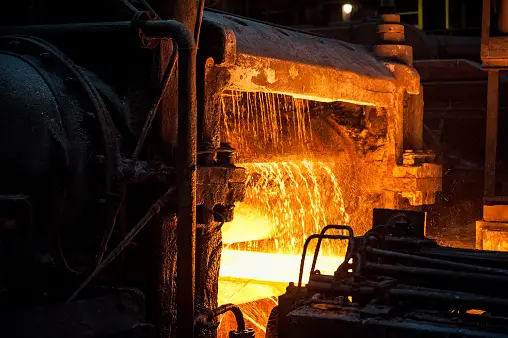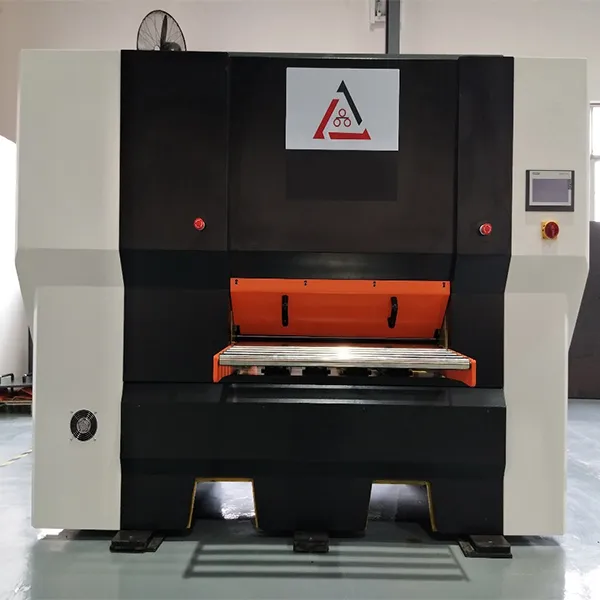
Achieving Precision with a Four-Roll or Four-High Leveling Machine Design
In the demanding world of metal fabrication, where perfection is measured in thousandths of an inch, the quest for flawlessly flat sheet metal and plate is constant. Achieving this level of precision requires more than just brute force; it demands sophisticated engineering and a deep understanding of material science. Among the various leveling machine designs available, the four-roll (often referred to as four-high) configuration stands out as a pinnacle of efficiency and accuracy for a wide range of materials. At XINLIJIN, we specialize in engineering advanced industrial automation equipment, and our expertise in four-roll leveling machine design is key to delivering unparalleled precision for our clients. This article delves into how this specific design achieves remarkable results and why it might be the optimal solution for your production line.
Understanding the Basic Design: What is a Four-Roll/Four-High Leveling Machine?
The term "four-high" originates from the rolling mill industry and describes a specific arrangement of work rolls and backup rolls. In the context of leveling machines, a four-roll system typically features two large-diameter backup rolls and two smaller-diameter work rolls. The material passes between the two work rolls, which apply the precise bending force, while the larger backup rolls above and below provide critical structural support to prevent the work rolls from deflecting under pressure.
This configuration is distinct from machines with more rolls (like 5, 7, 9, 11, or 13-roll systems), which are often used for thicker plate or for correcting more severe distortions. The four-roll design is exceptionally effective for a specific, high-value application: precision leveling of thin to medium-gauge sheet metal, strips, and coils.
The Engineering Principles Behind the Precision
The superior performance of a four-roll leveling machine is not accidental; it is the direct result of its fundamental design principles.
-
Eliminating Roll Deflection for Uniform Pressure: This is the single most important advantage. When leveling thin material, any slight bend or deflection in the work rolls will be imprinted onto the sheet, creating a wavy or uneven surface. The large backup rolls in a four-high design act as massive supports, ensuring that the smaller work rolls remain perfectly straight across their entire length. This guarantees that the leveling pressure applied to the material is perfectly uniform from edge to edge, eliminating the risk of introducing new distortions.
-
Concentrated and Controlled Bending Force: The four-roll design creates a very focused bending zone. The material undergoes a sharp, controlled reverse bending as it passes between the work rolls. This highly localized stress is extremely effective at neutralizing the internal locked-in stresses within the metal that cause warping and curling. It essentially "resets" the material's grain structure, resulting in a stable, stress-relieved, and perfectly flat product.
-
Optimized for High-Speed, Continuous Operation: The simplicity and robustness of the four-roll setup make it ideal for integrated production lines. In combination with an uncoiler and a feeder, it forms a seamless decoiler leveler feeder line that can process coils at high speeds without sacrificing flatness. This is crucial for industries like automotive, electronics, and appliance manufacturing, where consistent, high-volume production of flat components is required.
Key Applications: Where Four-Roll Leveling Machines Excel
The four-roll leveling machine is not a one-size-fits-all solution, but it is the undisputed champion in its domain. Its primary applications include:
-
Precision Strip and Sheet Metal: Ideal for leveling materials used in stamping, blanking, and precision fabrication.
-
High-Surface-Quality Materials: Perfect for pre-painted coils, polished stainless steel, and non-ferrous metals like aluminum and brass, where any roll mark or imperfection is unacceptable.
-
Eliminating Coil Set and Edge Wave: Exceptionally effective at removing the inherent curvature (coil set) from coiled stock and correcting edge wave, which are common challenges in coil processing.
-
Integrated Stamping and Blanking Lines: Serves as the critical leveling component in a CNC leveling machine setup just before the press or punch, ensuring every blank is perfectly flat for the forming operation.
Why Choose a XINLIJIN Four-Roll Leveling Machine?
At XINLIJIN, we don't just build machines; we engineer solutions. Our four-roll and four-high leveling machines are designed with features that maximize their inherent advantages:
-
Superior Rigidity: Our machines are built with heavy-duty, reinforced frames to provide a stable platform, further enhancing the anti-deflection properties of the roll system.
-
Precision Adjustments: We incorporate micro-precision adjustment mechanisms for the rolls, allowing operators to fine-tune the gap and pressure for different material thicknesses and types with exceptional accuracy.
-
Proven Performance: Whether as a standalone roller straightening machine or as the core of a larger automation system, our four-roll designs are trusted by manufacturers worldwide to deliver the flatness and stability required for their most critical applications.
Conclusion: The Smart Choice for Uncompromising Flatness
For manufacturers working with thin to medium-gauge materials where the highest standards of flatness and surface quality are paramount, the four-roll leveling machine design represents the optimal choice. Its engineered approach to controlling roll deflection and applying concentrated bending force makes it uniquely capable of achieving precision that machines with more rolls cannot match in this specific range. By investing in a XINLIJIN four-roll leveler, you are not just purchasing a machine; you are integrating a cornerstone of precision into your manufacturing process, ensuring your products are flat, stable, and of the highest possible quality.


















































